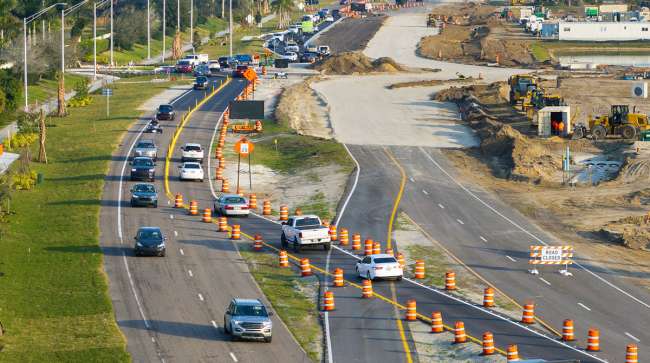Introduction
Enhancing permitting processes is on the agenda for many stakeholders, particularly within the logistics sector. Such reforms hold the potential to streamline operations and enhance efficiency across the board.
The Legislative Push for Reforms
As the legislation body reconvenes, a strong focus is placed on permitting reforms that reflect modern logistical needs. Lawmakers are gearing up to champion reforms that could signify a transformative shift in how logistics operations are executed.
The Role of Key Figures
First and foremost, influential figures in the legislative arena, particularly those leading transportation committees, are set to outline platforms prioritizing efficiency in permitting processes. Their efforts are expected to address various logistical challenges, such as reducing the delays associated with environmental assessments and construction related to logistics infrastructure.
Identifying Core Issues in Current Permitting Processes
Current permitting processes often create obstacles for logistics operations. These include delays in project approvals and complex regulatory frameworks that can hinder progress on critical infrastructure. Such issues have long been recognized as barriers to operational efficiency.
The Need for Better Infrastructure
Upgrading essential logistics infrastructure is a pressing need. Many regions are grappling with inadequate transportation frameworks that rely heavily on outdated permitting processes. From residential projects to commercial transportation improvements, the push for more efficient permitting could facilitate faster responses to infrastructure demands.
Examples of Logistics Challenges
- Housing shortages that affect distribution capabilities
- Increased time for energy projects due to bureaucratic red tape
- Need for expedited surface transportation improvements
The Legislative Process Ahead
As the committee prepares to debate proposed reforms this fall, discussions will likely revolve around a comprehensive package addressing the need for better logistics through improved permitting rules. The aim is to modernize these processes while ensuring they remain effective for environmental and community needs.
Long-Term Deadlines and Planning
With deadlines looming, especially those set for the fall of 2026 regarding update requirements for the nation’s highway initiatives, the integration of streamlined permitting policies is crucial. The reforms may set a precedent for how logistics infrastructure is managed moving forward.
Industry Perspectives on Regulatory Changes
Various stakeholders from within the logistics and transportation industries are responding to proposed changes with optimism. Leaders within major logistics firms recognize these reforms as necessary to facilitate more responsive and efficient supply chains.
Insights from Logistics Professionals
Industry leaders argue that such legislative reforms are essential for the resilience of logistics. They propose that reforming outdated policies could lead to reduced operational costs and improved delivery methods.
The Impact on Environmental Policies
Among the perspectives highlighted are concerns about balancing economic development with environmental responsibility. The harmonization of sustainability measures with streamlined logistical processes has become a talking point, as industry leaders discuss how adequate permitting can impact both efficiency and environmental conservation.
Support for Sustainable Practices
Advocates for sustainable logistics are transparent in their call for integrating eco-friendly practices within logistics operations. This shift involves examining how rapid permitting can coexist with policies aimed at maintaining air and environmental quality.
Logistics Through the Lens of Stakeholders
The voices of various stakeholders, including transportation professionals, highlight the urgency of these reforms. Their views have often intersected with broader environmental concerns while focusing on practical solutions for logistics management.
Recent Developments in Sustainable Infrastructure
Recent discussions surrounding infrastructure have illuminated the pressing need for a revised approach. Innovations in logistics infrastructure may lead to enhanced sustainability, ultimately resulting in faster, more efficient operations.
Conclusion
In summary, the ongoing discussions surrounding permitting reforms signal an important movement towards enhancing logistics efficiency. Stakeholders across the transportation sector play a pivotal role in realizing the potential of these reforms. With the landscape of logistics shifting towards increased efficiency and sustainability, it’s essential to consider how platforms like GetTransport.com can facilitate affordable and reliable freight transport solutions. Streamlined logistics positively impact the supply chain, enhancing efficiency in delivery and distribution. By prioritizing securing transportation needs now, businesses can take active steps towards embracing a future where logistics processes are simplified and effective. GetTransport.com offers a pathway towards optimizing logistics in a rapidly evolving environment, helping users to navigate the changing regulations and infrastructure developments effectively.

